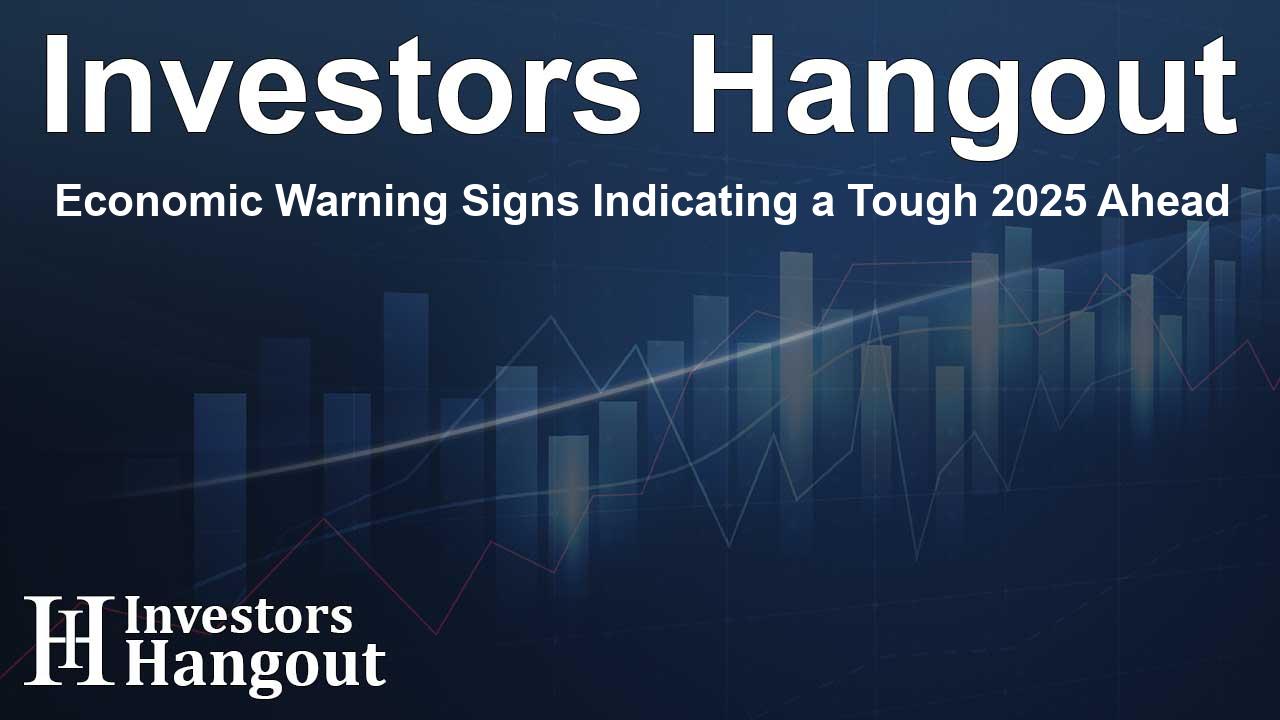Economic Warning Signs Indicating a Tough 2025 Ahead

Understanding Economic Signals as We Approach 2025
As we head towards a significant period of economic activity, particularly with upcoming elections, the financial landscape is showing signs of volatility. While many markets have performed well this year, underlying issues may affect future stability.
Economic indicators are painting a concerning picture. We currently see challenges manifesting in three main areas: labor market weaknesses, caution from major financial investors like Warren Buffett, and persistent inflation dynamics.
Signs of a Weakening Labor Market
The recent labor market revisions have revealed a less optimistic scenario. The adjustments show that the U.S. added a startling 800,000 fewer jobs than initially reported in recent months. The last payroll data indicated a growth of just 142,000 jobs, falling well short of economic predictions.
Revised figures from previous months also reflect a downward trend; July's job growth estimate was adjusted from 114,000 to just 89,000, while June’s total was slashed from 206,000 to 118,000. This raises questions about the accuracy of the August payroll figures, suggesting that they may be inflated.
Furthermore, employment indicators, such as the Sahm Rule, now signal deeper economic concerns with recent increases indicating recessionary conditions. Historically, when certain yield curves invert, like the recent drop below the 10-year Treasury yield, it often precedes economic downturns.
Buffett’s Strategy Reflects Market Sentiments
Warren Buffett’s investment strategies are worth noting. His firm, Berkshire Hathaway, has been accumulating a substantial cash position, nearly reaching $280 billion. This holds significant weight in the market, showing that even well-established investors may be hesitating to make new investments.
In recent quarters, Buffett has also made moves that reflect this caution; he has offloaded shares in several big-name companies while trimming his stake in Bank of America. Such strategic decisions can indicate broader market sentiments, suggesting that investment opportunities may appear limited amid current conditions.
The considerable cash reserve now rivals the market cap of significant companies, reflecting a more cautious outlook toward equities as valuations appear high across various metrics.
The Complicated Nature of Current Inflation
Inflation remains another crucial area of focus. The latest data reflects a 2.5% inflation rate, but it has proven challenging to manage effectively. Prices jumped post the last rate hike, with rates hovering around a concerning 2.89%.
Furthermore, a slowdown in imports from every quarter emphasizes the impact of supply challenges, driven in part by ongoing geopolitical shifts. As imports from major trading partners decline, it raises challenges that may spur structural inflation.
The recent economic landscape suggests a potential shift where inflation may not decline as quickly as hoped. Structural issues such as globalization's retreat and new tariffs could disrupt market balances further, placing more stress on consumers and businesses alike.
Concluding Insights on Market Dynamics
As we analyze these factors—labor market weaknesses, cautious moves from investment leaders like Warren Buffett, and increasing inflation—it becomes evident that approaching 2025 might bring considerable challenges to the economy.
Awareness of these signals is vital for stakeholders and investors alike. Proactive strategies may help mitigate potential risks associated with these economic pressures. Remaining informed about market dynamics and making careful decisions will be essential to navigate what may be a challenging future.
Frequently Asked Questions
What are the warning signs in the current economy?
The key warning signs include a weakening labor market, cautious investment behavior from prominent investors like Warren Buffett, and rising inflation rates indicating potential structural issues.
How has the labor market data changed?
Recent revisions indicated a loss of 800,000 jobs from previously reported figures, suggesting that the labor market is weaker than anticipated.
What impact does Buffett’s cash reserve have on the market?
Buffett's large cash reserve signifies cautious market sentiments, indicating a potential difficulty in finding attractive investment opportunities amid high valuations.
Why is inflation a concern moving forward?
Persistent inflation caused by deglobalization and rising tariffs may lead to structural issues in the economy, affecting consumer prices and overall market stability.
What strategies can investors adopt in response to these signs?
Investors should stay informed about economic signals, diversify their portfolios, and consider more conservative approaches to navigate potential market challenges ahead.
About Investors Hangout
Investors Hangout is a leading online stock forum for financial discussion and learning, offering a wide range of free tools and resources. It draws in traders of all levels, who exchange market knowledge, investigate trading tactics, and keep an eye on industry developments in real time. Featuring financial articles, stock message boards, quotes, charts, company profiles, and live news updates. Through cooperative learning and a wealth of informational resources, it helps users from novices creating their first portfolios to experts honing their techniques. Join Investors Hangout today: https://investorshangout.com/
Disclaimer: The content of this article is solely for general informational purposes only; it does not represent legal, financial, or investment advice. Investors Hangout does not offer financial advice; the author is not a licensed financial advisor. Consult a qualified advisor before making any financial or investment decisions based on this article. The author's interpretation of publicly available data shapes the opinions presented here; as a result, they should not be taken as advice to purchase, sell, or hold any securities mentioned or any other investments. The author does not guarantee the accuracy, completeness, or timeliness of any material, providing it "as is." Information and market conditions may change; past performance is not indicative of future outcomes. If any of the material offered here is inaccurate, please contact us for corrections.